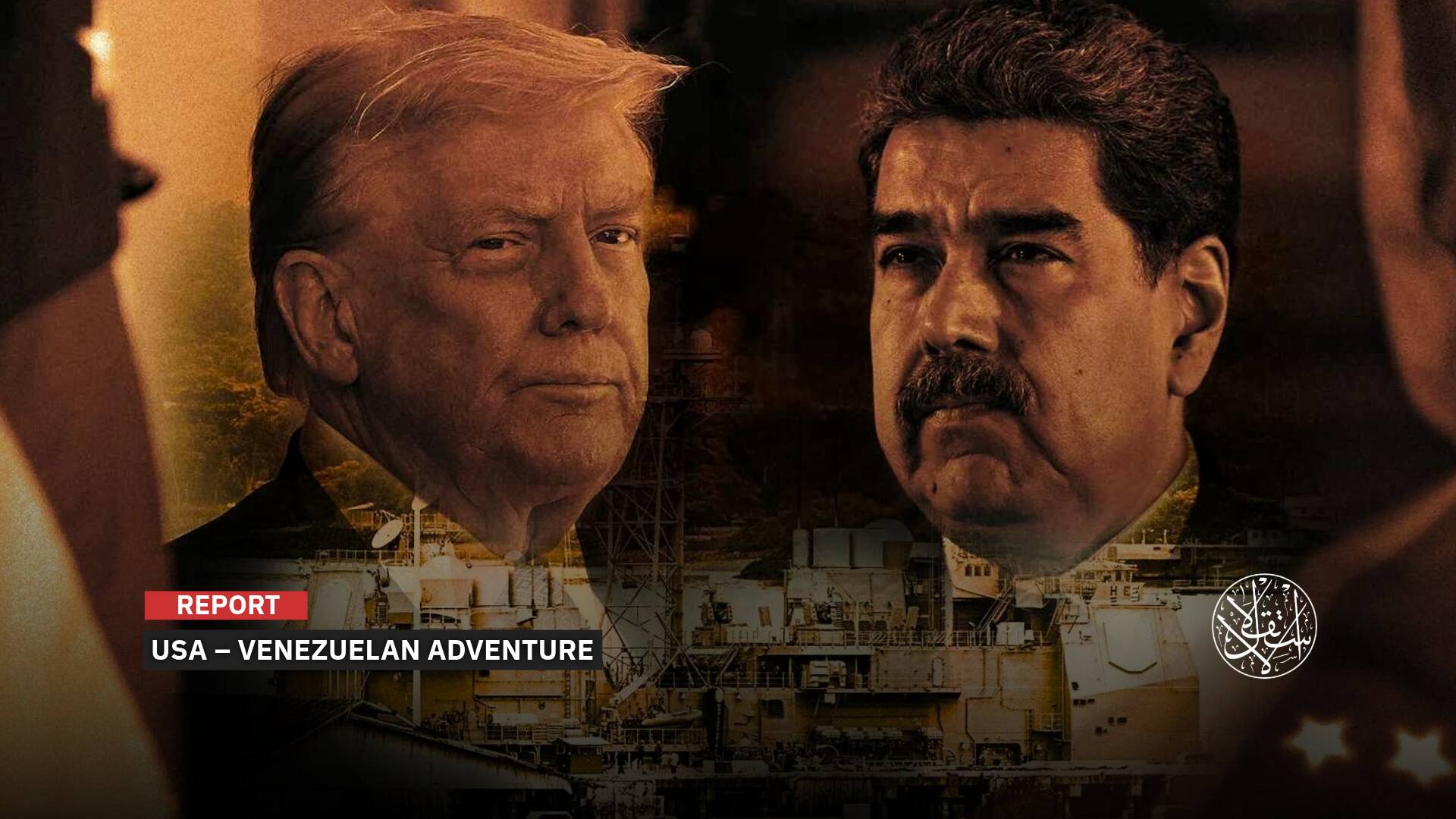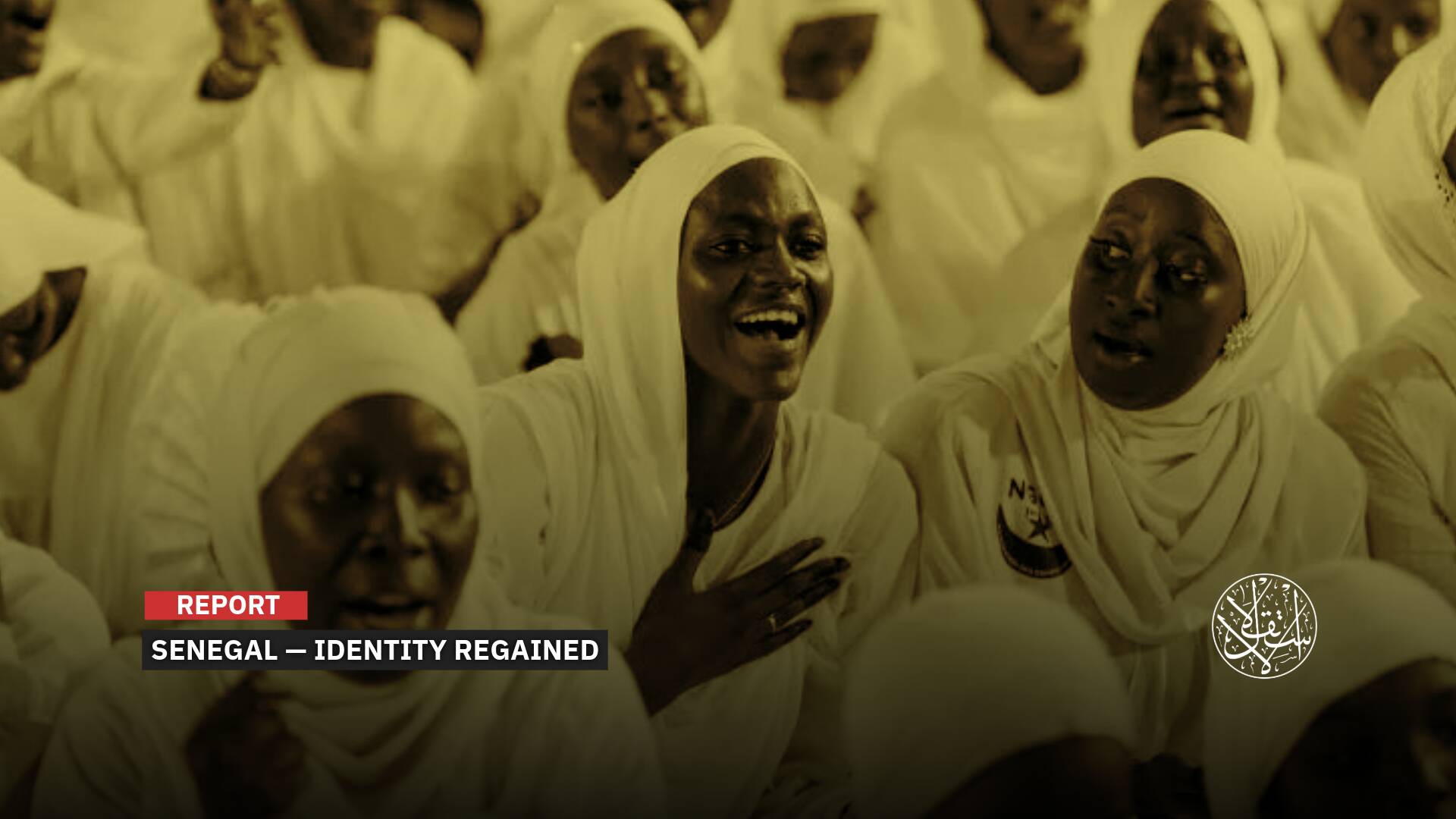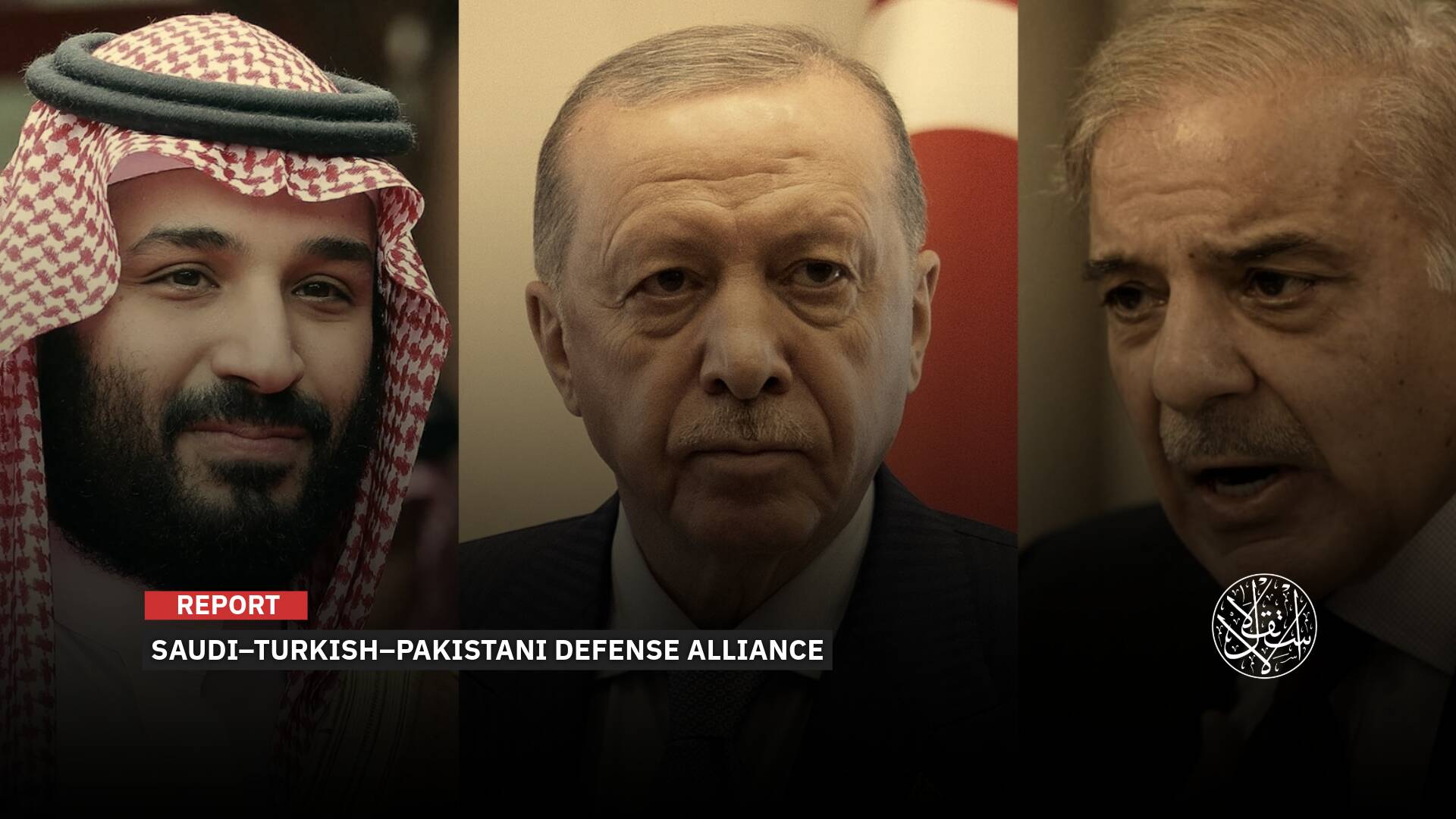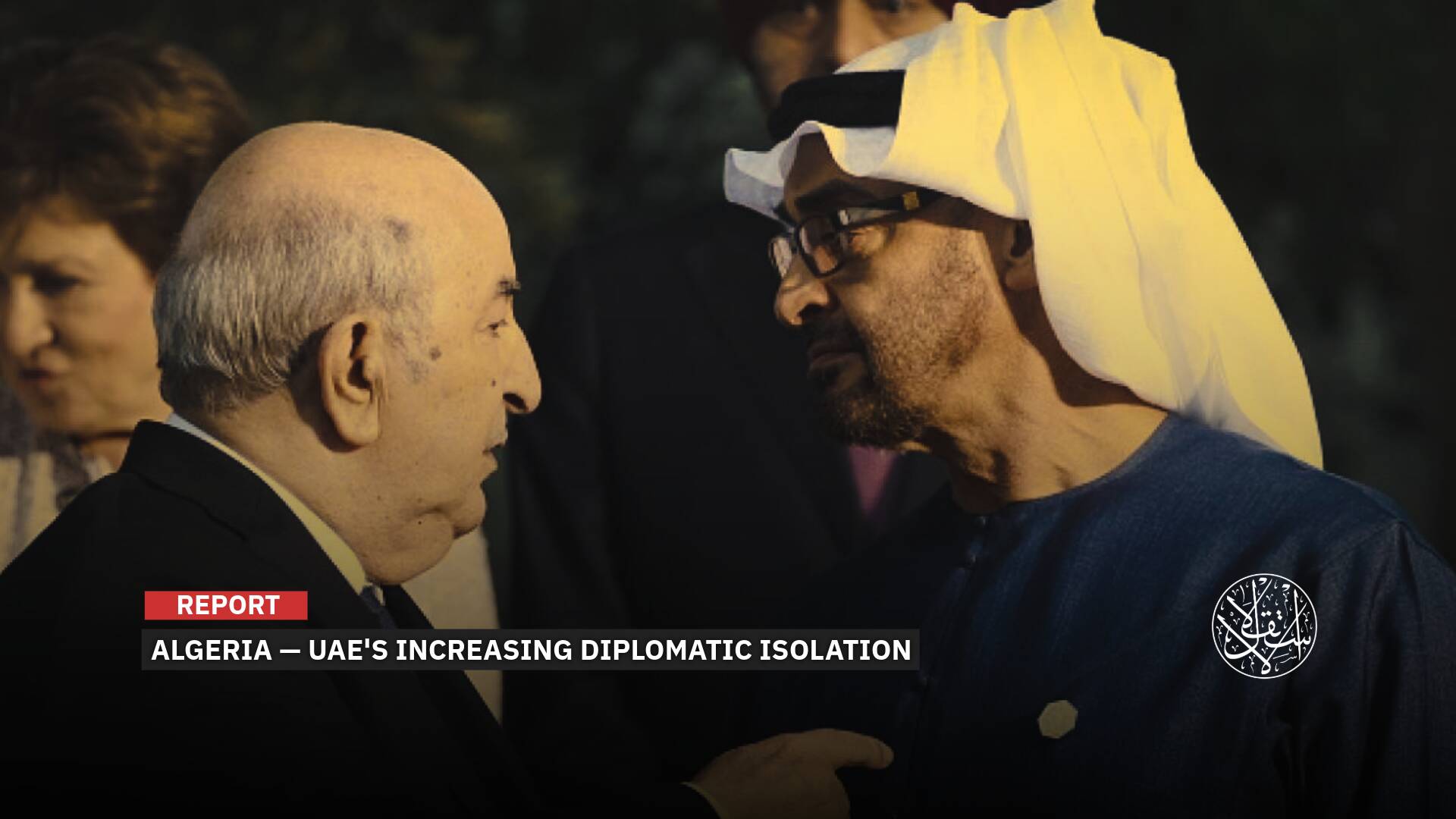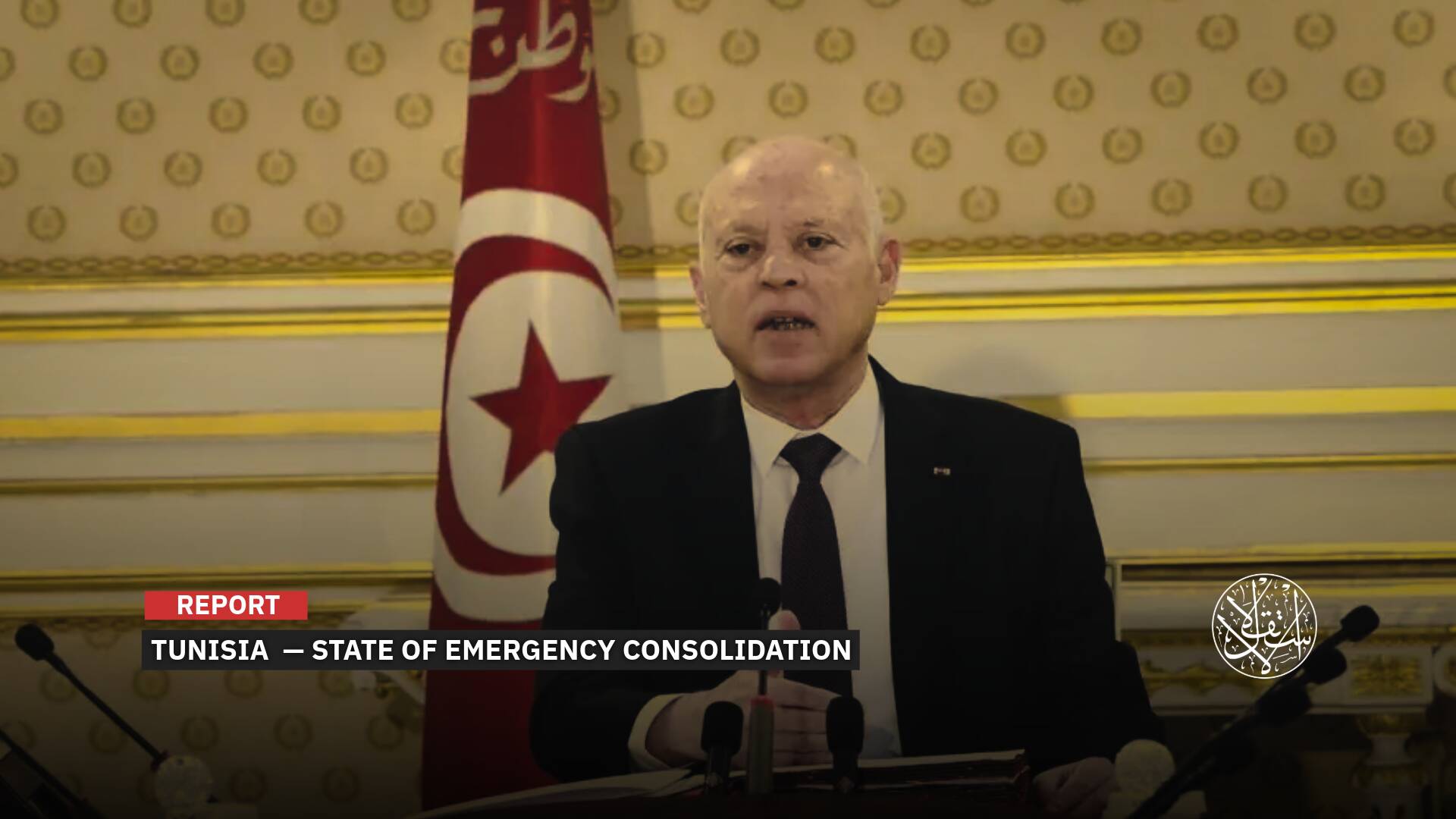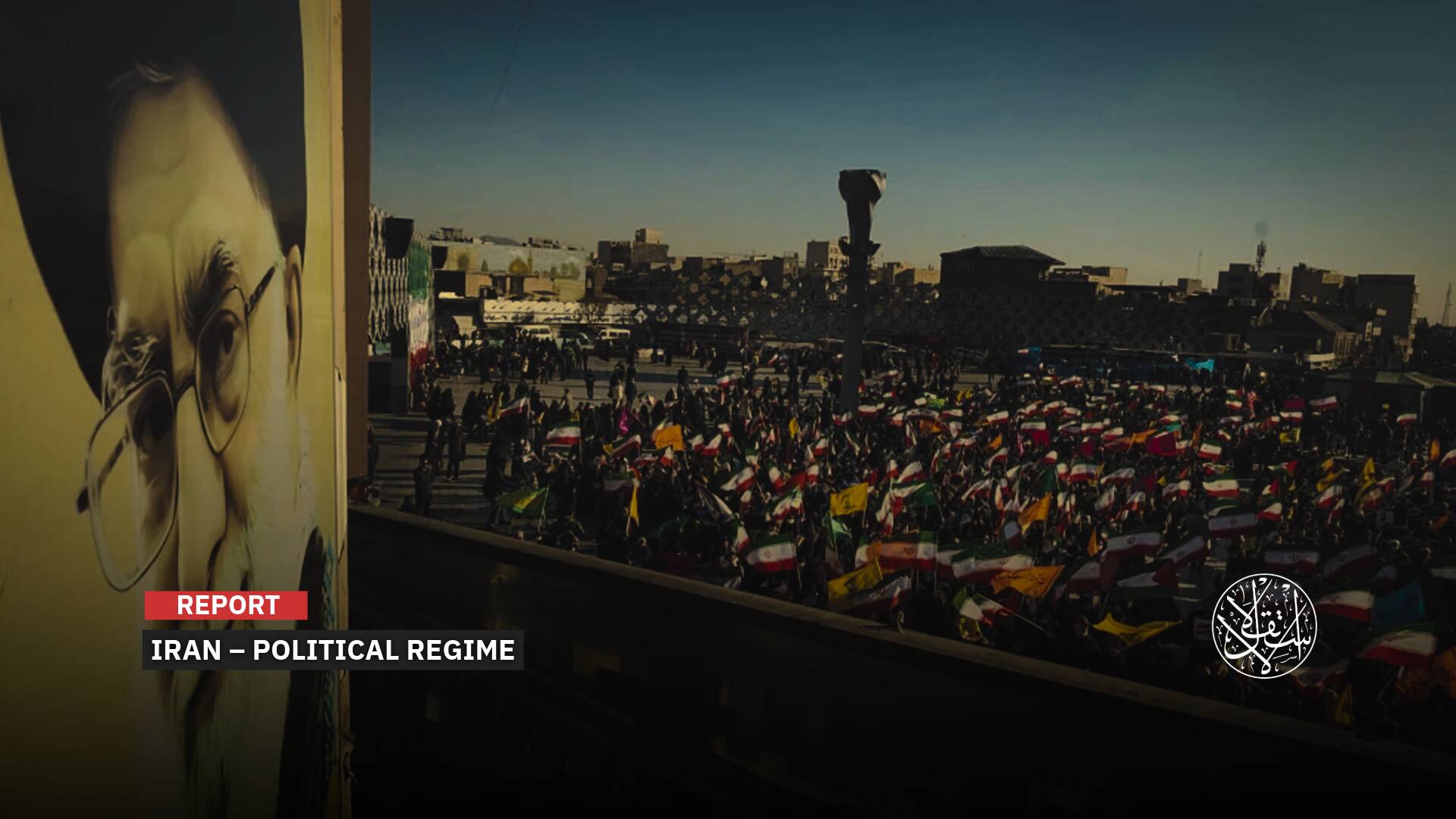Ethiopia, UAE, and 'Israel' Form 'Shadow Alliance' Raising Alarms Over Red Sea and Yemen Security
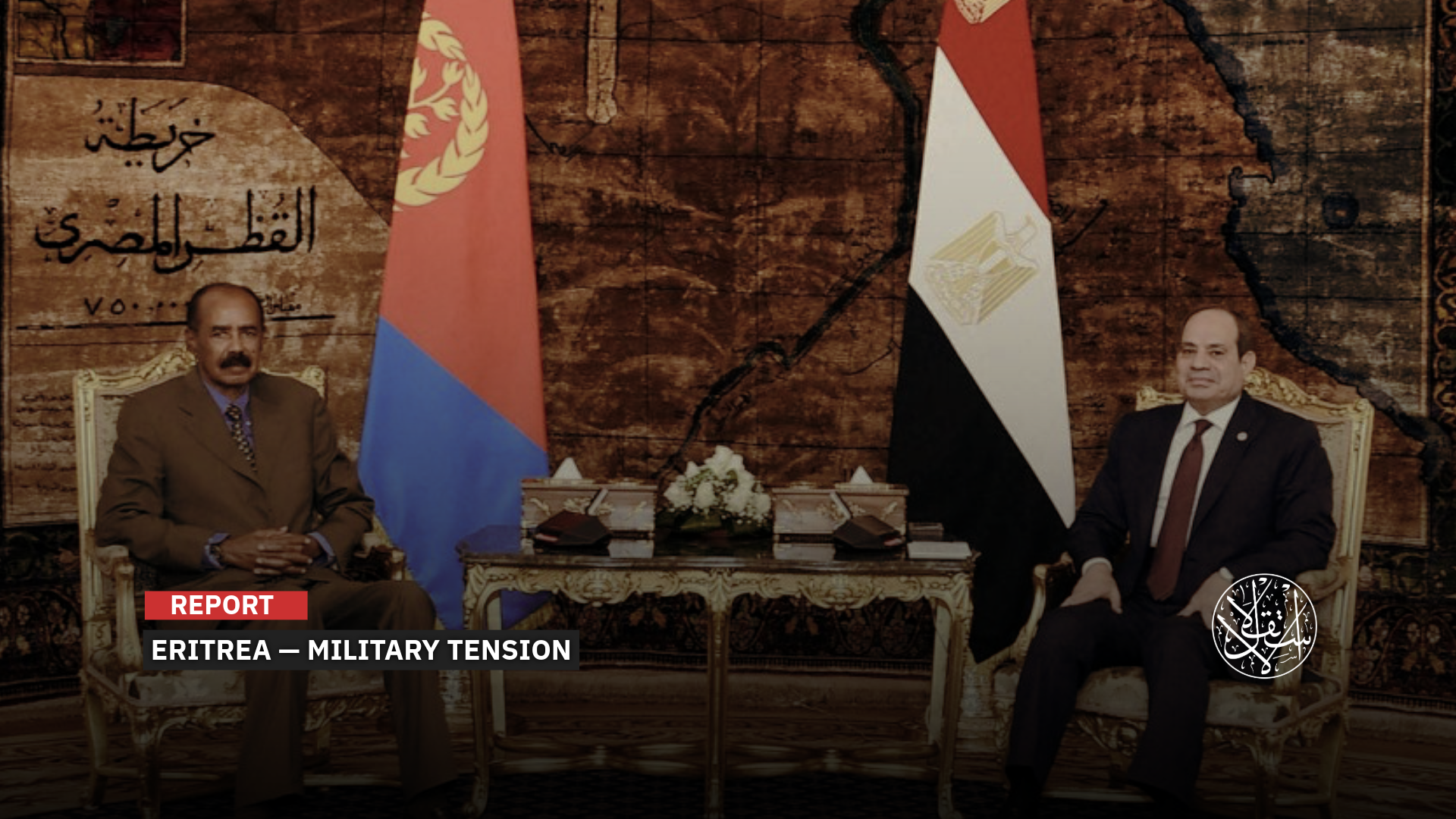
Afwerki said that foreign forces are trying to build military installations on Yemen’s islands.
In a surprising statement, Eritrean President Isaias Afwerki linked the ongoing crisis in Yemen to the militarization of its islands, while suggesting that coastal states, rather than foreign military bases, should take responsibility for securing the Red Sea, without naming them explicitly.
Yemen has been mired in a deep crisis since 2014, when the Houthis staged a coup against the legitimate government and seized control of vast swathes of territory, including the capital, Sana’a.
Following the events of October 7, 2023, the group escalated its operations, launching attacks on vessels in the Red Sea in support, according to its own account, of Palestinian factions confronting Israeli Occupation Forces.
The United States and Western nations responded to these attacks with airstrikes targeting the Houthis, before President Donald Trump announced, on May 6, 2025, that an agreement had been reached with the group to halt the attacks, coming less than two months after he issued military orders against them.
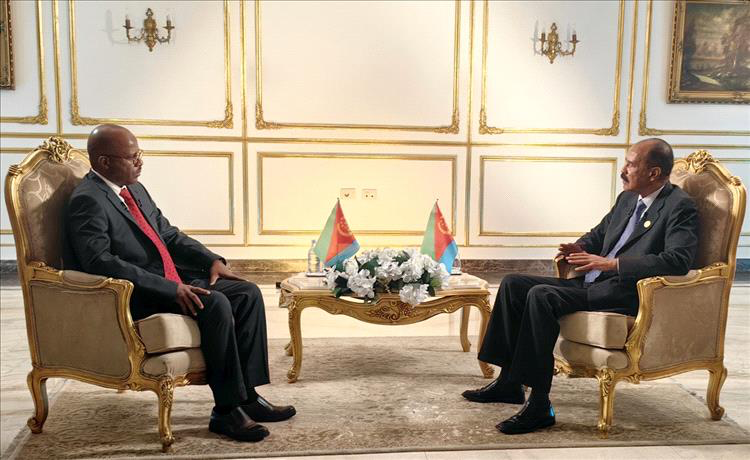
Rare Warnings
In one of his rare public statements, Eritrean President Isaias Afwerki issued stark warnings about the accelerating shifts in the Red Sea, placing Yemen and its islands at the heart of the region’s geopolitical landscape.
In a television interview on November 15, Afwerki described the vital waterway as a “global interest,” stressing that the responsibility for securing it lies primarily with coastal states rather than “foreign military bases,” which he called “unnecessary” and a direct threat to regional populations.
The Eritrean president linked the ongoing Yemeni crisis to a project of militarizing the Red Sea, emphasizing that Yemen’s islands, Socotra, Mayon, and Zuqar, have become pivotal to understanding developments in one of the world’s most critical maritime routes.
He added that instability in Yemen is no longer a purely domestic matter, but the result of international powers seeking a permanent military presence at key navigation points, warning that the militarization of Yemeni islands poses a direct threat to Eritrea, Egypt, Somalia, and regional maritime security more broadly.
Afwerki called for Red Sea protection to be a product of its littoral states, advocating for each country to build its own capacities and for joint coordination between Egypt, Eritrea, Yemen, and Somalia under a unified legal framework that prevents external powers from exploiting security vacuums.
He clarified that international cooperation is welcome only through collective agreements submitted to the United Nations, not through unilateral arrangements that legitimize foreign bases or external influence.
The president highlighted the geographic and strategic links between the Red Sea, the Bab el-Mandeb Strait, and the Gulf of Aden extending to Somalia and Yemen, noting that “the same logic applies to security in the Gulf of Aden, stretching between Somalia, Yemen, and Oman,” and expressing concern over external powers’ attempts to assert dominance in this sensitive region.
As of November 18, no official responses had been issued by the countries Afwerki referenced, particularly Yemen, which is most directly connected to his warnings about escalating tensions in the Red Sea.
His statements followed a visit to Egypt on October 30, 2025, which carried political messages beyond bilateral relations and placed four strategic issues on the table: the Horn of Africa, the Sudanese crisis, developments in Somalia, and Red Sea security.
During the Cairo visit, Afwerki underscored the importance of ensuring Red Sea security and strengthening cooperation among littoral states to avoid interference in navigation through this vital waterway.
In the same vein, Egyptian head of the regime Abdel Fattah el-Sisi emphasized the need to intensify coordination between Egypt and Eritrea, as well as with Arab and African countries bordering the Red Sea, to enhance security and stability in this critically important region.
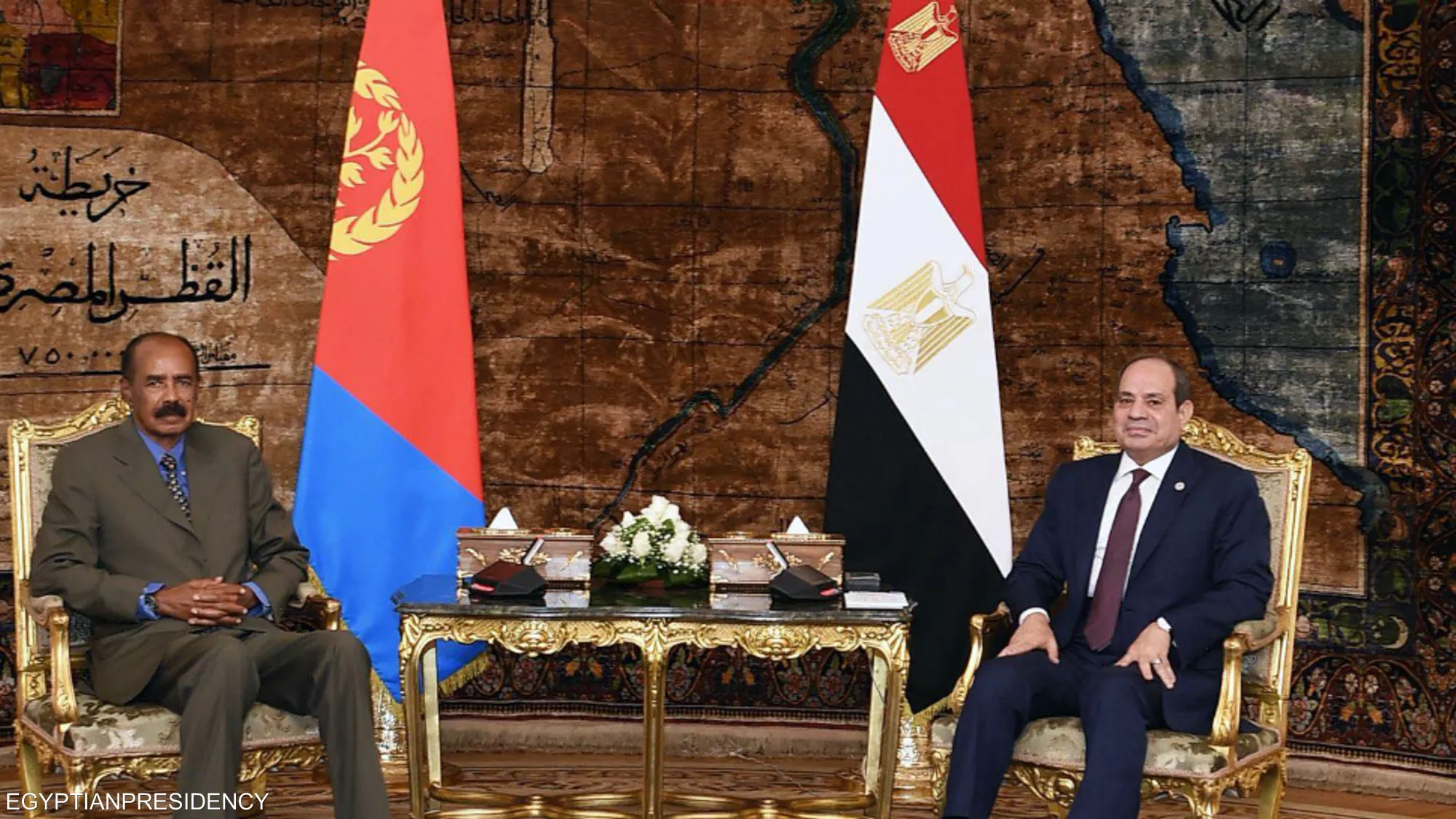
A Late Warning
Regarding the significance of Afwerki’s remarks, Yemeni writer and political analyst Ahmed al-Shalfi said that “his statements are striking and cannot be overlooked, he did not offer ordinary positions, but delivered one of the clearest political messages issued by a Red Sea state leader in recent years.”
Al-Shalfi wrote in a post on X dated November 16 that “this is the first time a head of state overlooking the Red Sea has linked the Yemeni crisis with the project to militarize the maritime corridor, a clear indication of the severity of what is unfolding on both shores of this strategic strait,” asking whether these comments amount to a “belated warning” to Red Sea states.
He added that Afwerki “brought Somalia into the same frame, arguing that the fragility of the Somali state is being exploited in the same way Yemen’s situation is being exploited, and that what is happening in Socotra, Mayon, and Zuqar parallels attempts to Balkanize Somalia, which means the project is one and the regional map is being redrawn according to a vision that threatens state unity and the safety of maritime routes.”
Al-Shalfi noted that Afwerki “placed Yemen at the center of the picture, offering through it a reading of what is happening in the Red Sea, a geography intended to be violated through militarization, and coastal states pushed away from their natural role in protecting one of the world’s most critical waterways.”
He described Afwerki’s comments as “a warning about Red Sea security that begins with Yemen, and that leaving Yemeni islands in the hands of foreign powers means the collapse of maritime security for the entire region,” asking, “Are we looking at a warning from a single state, or a voice speaking on behalf of all Red Sea littoral nations?”
Yemeni political analyst Abdal kader Ali said the current convergence of interests in the region ultimately serves all Yemenis, adding that it is their responsibility to turn this challenge into an opportunity.
He argued that Afwerki’s remarks reflect a growing contradiction between what is happening on the Yemeni islands and Eritrea’s own strategic interests.
Ali explained in a television interview on November 14 that Yemen’s Socotra archipelago, due to its proximity to the Indian Ocean, has effectively been transformed into a fully fledged military base hosting surveillance aircraft, radars, and missiles, a development that could isolate Eritrea as it seeks to expand its military influence in the Red Sea.
He noted that Eritrea had benefited economically from the ports of Assab and Massawa after leasing them to the United Arab Emirates, pointing out that the presence of an advanced Yemeni military force on islands near the Indian Ocean could pose a threat to those gains, since such a force could assume responsibility for regulating, overseeing, and monitoring maritime navigation, as well as offering alternative ports that would undermine Eritrea’s economic interests.
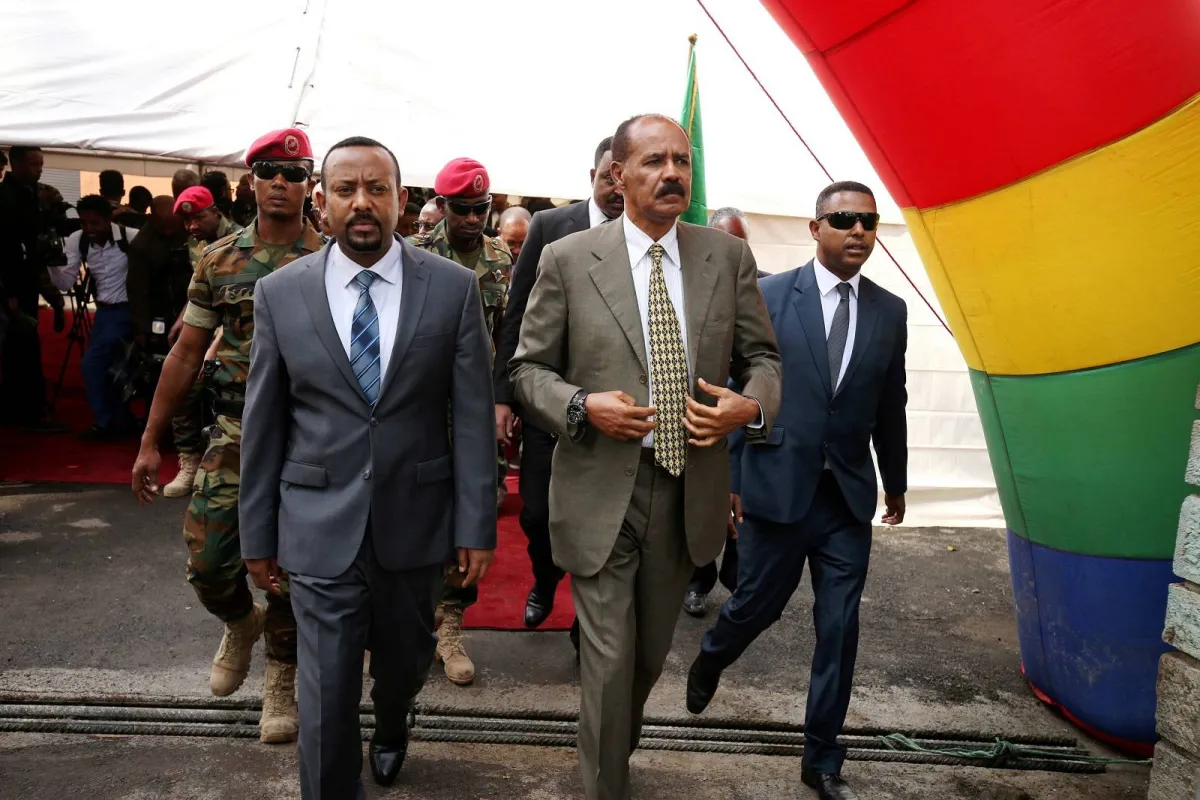
Ethiopian Threat
African affairs researcher and writer Mohammed Saleh argued that Eritrean President Isaias Afwerki’s warnings about the dangers posed by foreign military bases stem from a central concern, noting that his remarks come amid an increasingly heated war of words with the Ethiopian government over Eritrea’s Assab port.
Saleh explained in comments published by the Yemeni outlet Belqees Net on November 18 that Ethiopia is seeking access to the Red Sea and considers itself entitled to control the port of Assab, grounding its claim in a range of historical and political narratives.
He added that Ethiopia might resort to alternative means if it fails to secure the port through legal channels, a dynamic he believes lies at the heart of Afwerki’s statements.
He said that the establishment of military bases, and the presence of forces that do not belong to Red Sea littoral states or have no direct connection to the ownership of its islands, pose a security threat to those countries and to vessels crossing the waterway.
Saleh added that Afwerki’s other major concern revolves around information suggesting work is underway to establish a military base on the Yemeni island of Zuqar, without naming the country involved, though the actor, he said, is widely understood.
Afwerki fears such a base, if completed, could threaten Eritrea and perhaps become part of any future Ethiopian maneuver.
The researcher also noted that the United Arab Emirates is aligned with “Israel,” and that Ethiopia enjoys strong backing from both, relying on their support to expand its presence in the Red Sea and pressure Eritrea, arguing that Addis Ababa’s position is effectively bolstered by these two partners.
“The presence of Israel via the UAE in the Yemeni islands poses a grave threat to the sovereignty of regional states and to international and regional interests that pass through this vital sea route, and this is beyond doubt,” Saleh concluded.
In early October 2025, Middle East Eye published a report on a network of military bases the UAE is building in coordination with “Israel,” stretching from Yemen’s Socotra archipelago to Berbera in Somalia, as part of a plan designed to tighten control over the Gulf of Aden, one of the world’s most critical maritime corridors.
The report asserted that “these moves constitute a dangerous shadow alliance that threatens Yemen and its sovereignty, turning it into a shared sphere of military influence for Israel and Abu Dhabi.”
It also detailed military facilities the UAE has established or expanded on the Yemeni islands of Abd al Kuri and Samha, both part of the Socotra archipelago, administered by the Southern Transitional Council, as well as on the airports of Bosaso and Berbera in Puntland and Somaliland, and in the Yemeni ports of Mocha and Mayon, the latter of which lies along a route through which roughly 30 percent of the world’s oil passes via the Bab el Mandab Strait.
Sources
- Eritrean President: Yemen and Its Strategic Islands at the Heart of the Red Sea Security Battle [Arabic]
- Foreign Bases on Yemen’s Islands, What Lies Behind the Eritrean President’s Remarks on Protecting the Red Sea? [Arabic]
- What Is Behind the Eritrean President’s Statements on Yemen’s Islands? [Arabic]
- Afwerki’s Visit to Cairo, Four Heated Files on the Table in His Meeting With Sisi [Arabic]
- Another Dimension, Did the Houthis Intentionally Sideline the U.S. to Confront Israel Alone? [Arabic]


